‘Teddy Perkins’: Southern Gothic Horror in ‘Atlanta’
So, I went back and forth on whether or not I should write this essay. Everything that I’ve written beforehand has been on a feature film. And for those who don’t know Teddy Perkins is an episode of the celebrated television series, Atlanta. That’s why I was hesitant about whether or not I should write this. There has been a lot of discussion on what is or isn’t cinema. I’m not saying this because I have a dog in this fight. (It’s opinion based so as Keanu says in the masterpiece, Point Break, vaya con dios) I’m saying this because it is hard to categorize art nowadays so we just use the blanket word: Content. Ah. Content. I have opinions about this but I’ll get into that at another time. The main question is this: Is television cinema? I’m going to be very honest with you, fam. I have no fucking idea.
Cinema has had a significant impact on TV. Before anyone knew what it was channels used to air films. I’m not talking about the way film has been screened on TV in modern times (With shitty censorship and commercials). I’m talking about screening films in their entirety.
Slowly but surely, in the following decades, shows started to become more cinematic and now those shows are some of the most popular art forms today. Whenever we talk about “Prestige Television,” people always bring up how cinematic the show is. The showrunners of Breaking Bad and The Sopranos have frequently spoken about how certain films have influenced their respective shows. I used to frequently say, “Yo, Breaking Bad is like a mooooooovie.”
So, for this essay, let’s say Atlanta is “cinematic.”
‘Twin Peaks’ with Rappers
The first season of Atlanta was a game-changer. It was critically lauded and showrunner and star, Donald Glover not only won an Emmy award for his performance, he was also the first black director to win an Emmy. There’s nothing like it on TV. It’s one of the best shows of all time.
Before he created Atlanta, Donald Glover was a jack-of-all-trades. I hesitate to use this word because it creates an expectation, but the word wunderkind was thrown around a few times. Donald Glover went to NYU, not long after that, he was a writer on 30 Rock, then a cast member of the celebrated cult TV show, Community, he had a standup special, and let’s not forget, he’s a rapper. Donald Glover is also the rapper, Childish Gambino, a rapper for nerds, and his shit slaps (Right after the first season of Atlanta, Childish Gambino dropped Awaken, My Love. Listen to it. It's a goddamn classic.)
Donald Glover pitched the show as a Curb Your Enthusiasm with rappers. The protagonist, Earn, (Played by Glover) is the music manager of his cousin, Alfred AKA Paper Boi (played by the brilliant thespian, Brian Tyree Henry). The pitch was Earn and Alfred try to level up in the Atlanta music scene and get into hijinks. They have a wacky friend named Darius (LaKeith Stanfield) who is almost like the Kramer of the crew. Earn is a Princeton dropout with a baby, he’s kinda homeless, and he’s in a messy ass situation with the mother of his child and ex, Van (Zazie Beets). He lives with her. They sleep in the same bed and she dates other guys. Pretty normal show. It was greenlit by FX.
One of the best casts in television.
Now, this is definitely the show but with one key change: The show isn’t Curb Your Enthusiasm with rappers. It’s Twin Peaks with rappers. Glover wanted to make a show about what it’s like to be black in America; he wanted to take the absurdity of it and amplify it and make it surreal. The character, Ahmad White, a mysterious man in a suit and bowtie who speaks to Earn on a bus, appears and disappears mysteriously, and airs strange commercials advertising his self-help program. A rapper has an invisible car. Justin Bieber is black. Earn’s uncle (Katt Williams) owns a wild alligator. Alfred sees a mysterious man in the woods who threatens to kill him. Is he a spirit? Is he a delusion? Who knows? This brings us to one of Atlanta’s most celebrated episodes; one that was considered not only the best episode of the series but one of the best television episodes of all time. The show was favorably compared to Jordan Peele’s Get Out and Academy Award-winning director/cinematographer, Steven Soderbergh said it was the “most beautifully photographed half-hour of TV” he had ever seen.
What makes Teddy Perkins such an interesting episode is that it’s unlike the other Atlanta episodes. Sure this episode is surreal like the others but every episode is usually a comedy-drama about Earn, Alfred, or Van. We watch them struggle and get into messy situations we find funny but we can sympathize with. All these characters are in a state of ennui and that’s something we can all relate to. Jesus. This shit is getting heavy.
The Piano with Multi-colored Keys
Anywho, Teddy Perkins isn’t a comedy-drama. It’s a horror film. Specifically Gothic Horror but we’ll get into that in a moment. It was shown in its entirety with no commercial breaks; an episode that constantly makes the audience mutter, “the fuck is going on?” And when it comes to Atlanta, that’s really saying something. Darius, Alfred’s wacky friend, takes a U-Haul to a mansion far from Atlanta to pick up a piano with multi-colored keys. It’s the deal of a lifetime because it’s free. It’s a long drive so he plays Stevie Wonder because his songs are long. (The track at the beginning of the episode is Sweet Little Girl from the Stevie Wonder album, Music of my Mind. Listen to it. That shit slaps.) When he enters the mansion, we see the shape of someone hidden in the shadows and we hear a voice ask if Darius was just playing Stevie Wonder in the car. A skeletal pale face emerges from the shadows and now we are all going to have nightmare fuel for the rest of our lives. This is Teddy Perkins (Donald Glover in whiteface giving one of the oddest performances any human has given in the history of drama). He loves Stevie. He even identifies which album the song is from. He also doesn’t look human. He looks like a ghoul. Or if a vampire smoked a fuckload of crack.
I’d have booked it so fast.
Sorry, guys. If I’m gonna suffer from nightmare fuel, you will too.
Teddy is kinda wacky. You can tell he doesn’t interact with people all that much. He doesn’t shake hands normally. He eats soft-boiled ostrich eggs which Darius finds nauseating. You can’t blame him because the sight of watching Teddy eat a softboiled egg is fucking horrid. Darius thinks he has servants when he speaks into a device when Darius requests water. It turns out it’s a tape recorder so Teddy can remember things. He plays it back for him. One of the notes he recorded was “Wash your hands. Immediately.” I shudder to think what the hell Teddy was doing when he recorded that.
“Yo, papi. Lemme get a baconostricheggandcheesesaltpepperketchup.”
He tells Darius that the piano he is taking belongs to his brother, Benny Hope, a black musician who played music decades in the 60s and 70s. He was friends with musicians like Stevie and Nina Simone. Teddy lives with Benny and he’s his caretaker. Benny developed a skin disorder and he can’t go out into the sun.
Nope.
While the audience definitely knows something really weird is going on, it’s not until we cut to security monitors watching Darius’ every move that we realize what’s happening isn’t just weird, something really fucked up is going on and Darius needs to get the fuck out of that house. Darius hears the piano playing and roams the halls. We see photos of Benny, with celebrities and presidents until we see the final photo: Benny in a wheelchair; his skin covered, complete with gloves and a mask. Darius arrives at the door and the piano playing stops. Teddy’s head shoots out the door and tells Darius to wait downstairs and he’ll bring him his water. (He’s going to mix some Fiji with Evian with a dash of Poland Spring, perhaps Voss if he has it.) It’s reminiscent of the Gothic Horror film, The Pit and the Pendulum, directed by Roger Corman, who directed a series of films based on the stories of Edgar Allan Poe. In the film, the protagonist hears the sound of loud machinery behind a door. When he approaches it, the owner of the house played by the brilliant Vincent Price shoots his head out in a similar fashion and shoos our protagonist away. Teddy is definitely up to something and Darius is starting to think Teddy is actually Benny, Teddy being his persona since dyeing his skin white.
Before Darius signs the documents, Teddy takes him on a tour of the house. He wants to turn the mansion into a museum honoring Benny. He shows him a gift shop and shows him his favorite part of the museum: a dark room honoring his father. His father forced him and Benny to learn the piano under a strict regiment. And if they made any mistakes, he would physically abuse them. Teddy doesn’t see anything wrong with this. Instead, he explains to Darius that it was a sacrifice so they can be great at life. His father told them “great things come from great pain.”
Teddy presents his tribute to “great fathers”
Darius signs the documents and puts the piano (which he finds a bloodstain on) in the elevator. The elevator passes the first floor and heads into the basement A man in a wheelchair (Benny) moves toward Darius; his skin is completely covered, tells Darius that Teddy plans to kill them both and there is a gun in the attic.
Darius, completely weirded out, takes the piano and heads for the door but he’s that Teddy has parked his car behind his U-Haul, completely blocking his path. Darius heads upstairs to find Teddy. He finds Teddy watching old home movies. But these aren’t home movies of a birthday party or a wedding or something fun like that. They’re home movies of their father teaching Benny how to play piano; telling Benny to keep playing and stop crying. Darius watches with sadness and Teddy brandishes a shotgun and tells him that he will be his sacrifice.
Teddy watches his father abuse his brother, Benny.
Darius is heartbroken for Teddy, adding layers to the “wacky sidekick” by showing his deep empathy for Teddy’s suffering.
He tells Darius he’s going to kill him and frame him as an obsessed fan that murdered Benny. Darius pleads with Teddy. He understands suffering caused by a bad father. He tells Teddy that he’s sorry for everything that happened to him and that great things don’t always come from pain. He brings up Stevie Wonder again and tells him that love instead of pain should have been the answer. Teddy tells him he’s wrong when Benny covered in blood enters the room from the elevator. Teddy is surprised he’s alive and Benny grabs the shotgun and shoots Teddy dead. He then takes the shotgun and commits suicide as Darius watches in horror; shocked and in tears. The episode ends with Darius watching the coroners load up the bodies into a truck (and the piano along with it. Damn. After all that, he couldn’t keep the fucking piano). Darius watches in sadness as he drives away.
They really couldn’t let my man keep the piano?
“Benny Just Played What He Knew”
I mentioned before that Teddy Perkins is Gothic Horror. So, what’s Gothic Horror? Well, simply put, if you’ve ever seen a movie or read a book where there is some spooky shit going on in a house, that’s Gothic Horror. So, Dracula, Sunset Boulevard, and Psycho are classic examples. Modern examples are Get Out and Parasite. There are certain rules that a story must have in order to qualify as a Gothic Horror. First, there is the house. The architecture of the house and the discomfort our characters feel when they're in the house is the most important aspect of a Gothic Horror. Why? Well, I’m glad you asked. The house has to function as a metaphor for the struggles the protagonist is going through emotionally, psychologically, or both.
I know it’s creepy but this house is a vibe.
There are some tropes and archetypes that are staples of the genre. We’ve mentioned that house of course. There is also the owner of the house. There is usually something wrong with them. They have a tortured and painful past and they have a few screws loose, or the host is a fucking vampire. If you thought Teddy was a vampire the first time you saw him, I would not blame you. Usually, toward the end of the story, the protagonist goes to the basement and finds out the secret the host has been hiding all along.
I’ve definitely seen this dude at the 168th Street train station.
In Psycho, it’s the corpse of Mrs. Bates. Here, we discover that Benny is a real person and there is something very bad going on.
And finally, there’s our protagonist: An optimist whose world is completely turned upside down the minute they enter that house and everything they believe; their whole outlook on the world; is going to be challenged.
Bro, get the fuck outta there!
Seriously, bro! Get the fuck outta there!
“This motherfucker sus.”
“Imma fucking kill you.”
The reason Gothic Horror has lasted for so long is that the genre can be used to comment on anything. Get Out is a social commentary on race relations in America. Parasite comments on income inequality in South Korea. Donald Glover uses the genre to talk about black musicians in the past who suffered post-traumatic stress disorder and developed tragic and horrific coping mechanisms that hurt themselves and severely traumatized others. Teddy is the enigmatic host harboring a dark secret. This is a common trope that can be found in Dracula, Psycho, Sunset Boulevard, Jane Eyre, Rebecca, The Fall of the House of Usher. The list goes on and on.
How I dress when I’m a sad boi.
When Teddy talks about the room honoring his father, he says he wants it to honor all great fathers: Joe Jackson and Marvin Gaye, Sr. are mentioned. Marvin Gaye was murdered by his father. Joe Jackson physically abused his children so they can be great musicians and entertainers. The episode and Teddy, in particular, are definitely inspired by Michael Jackson; the bleached skin, the abusive father, and the high-pitched voice. The mansion as a museum invokes Michael Jackson’s Neverland Ranch estate. Benny’s skin condition, which is a reference to Jackson’s alleged skin condition (Benny can’t go out into the sun) is an example of taking a Gothic Horror trope, the vampire, to say Jackson’s bleaching of his skin was a result of his PTSD. As Jackson got older, his public persona was a frequent topic of discussion in the media due to his reclusion, eccentricities, and of course the sexual assault allegations.
Atlanta uses Gothic Horror to comment on a certain kind of artist. Teddy says that someone told him “your brother plays pain better than anybody. Benny just played what he knew.” There are toxic artists that think as Teddy puts it, “great things come from great pain.” But Darius brings up Stevie Wonder. His greatness came because his art came from love, not pain. In this episode, pain caused two brothers to fall victim to a murder-suicide. The two were traumatized because of the evil actions of their father. Evil begets evil. The episode ends with Evil, the final track of Stevie Wonder’s brilliant album, Music of My Mind. In the song, Stevie Wonder sings to Evil personified, asking why it has destroyed hearts, minds, broken homes, and created darkness. The premise of the song sounds corny at face value, but its dark and somber instrumentals contrasting Stevie Wonder’s gentle vocals that grow into cathartic screams reveal the song’s earnestness. The ending of the episode makes me really emotional. Teddy Perkins is one of the most heart-wrenching, though-provoking, excellently crafted artistic accomplishments in any medium. To quote paraphrase Darius, what if we saw love instead of all the other shit?
I’m gonna go cry now.


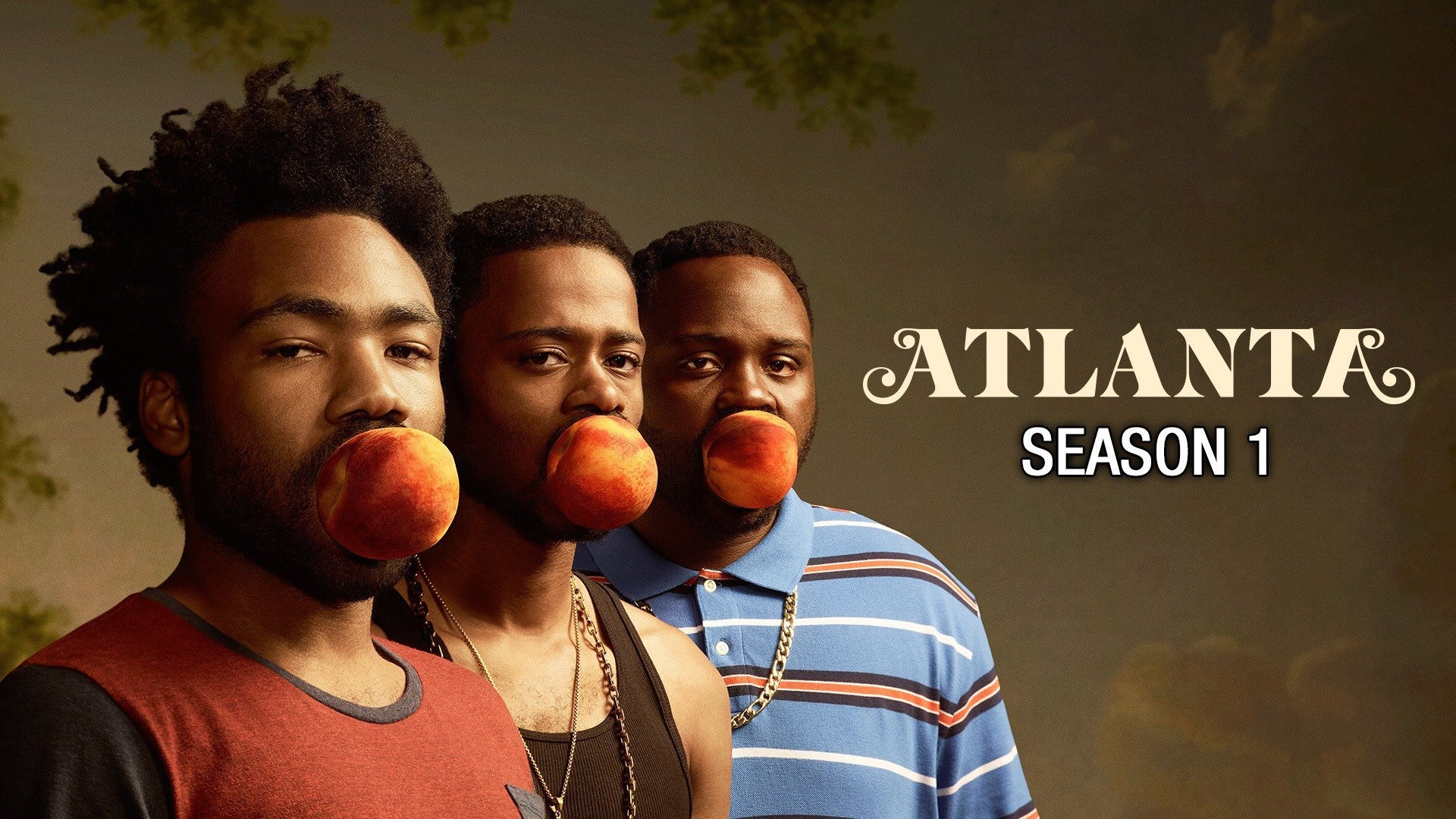
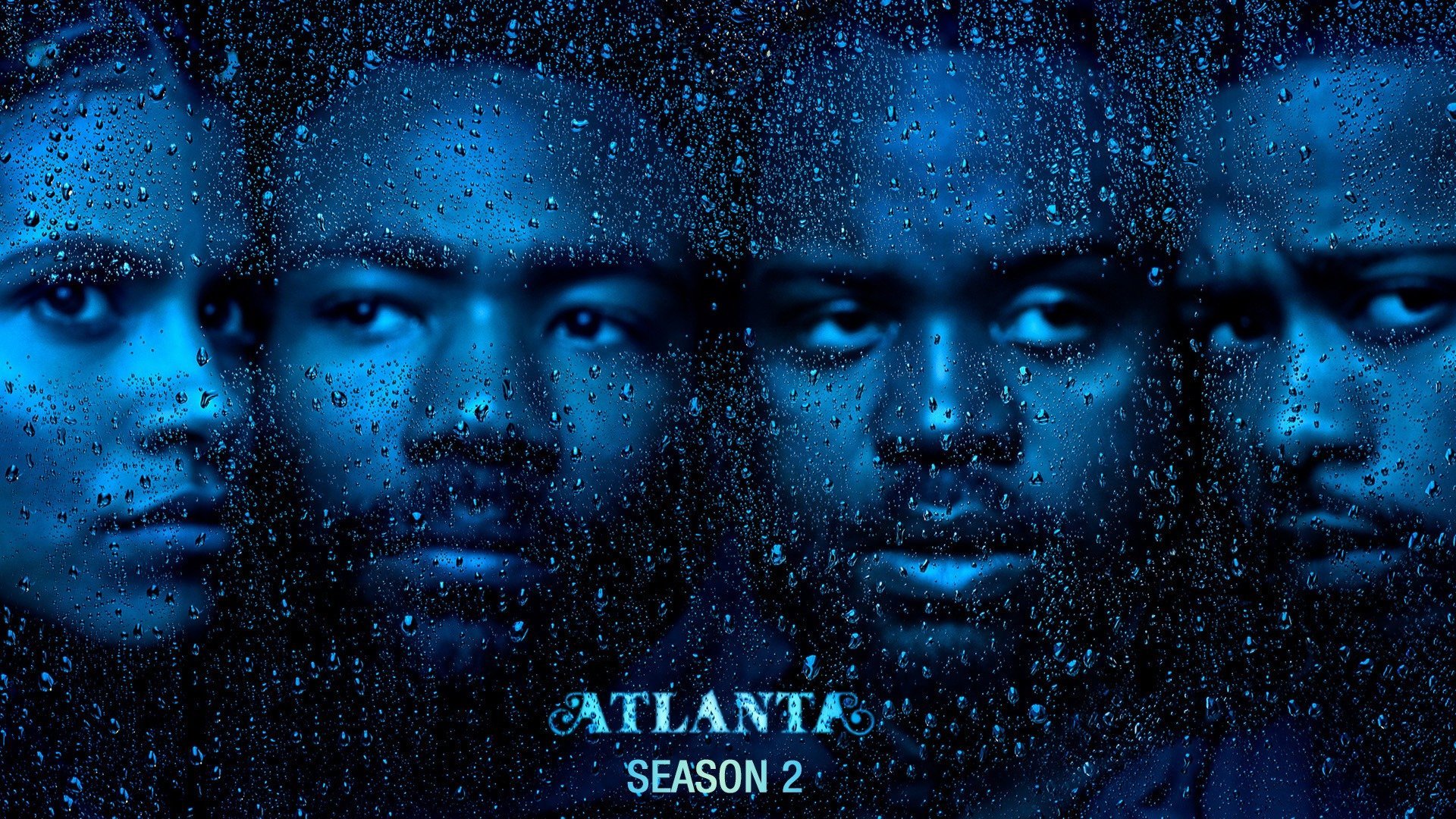



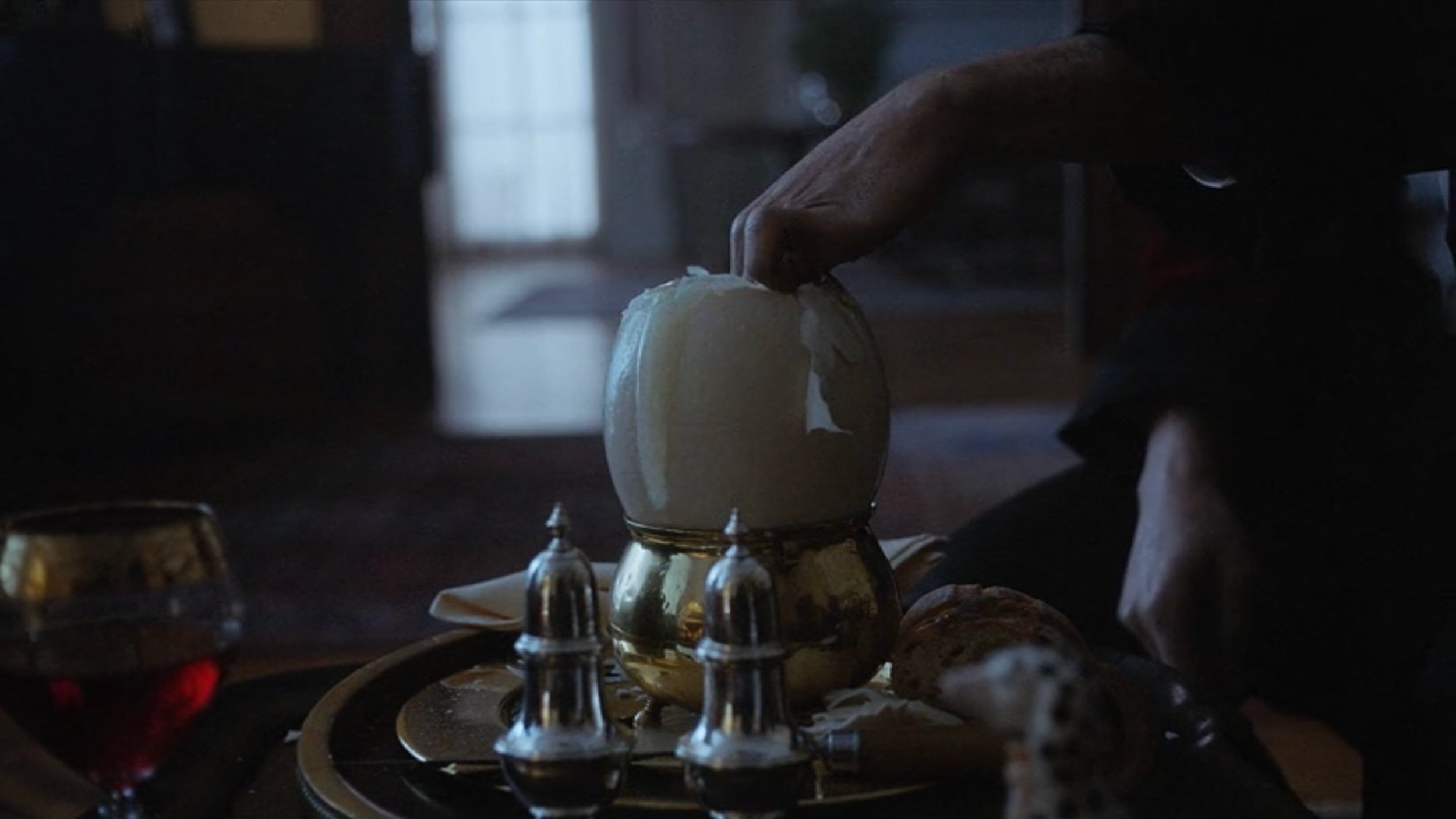











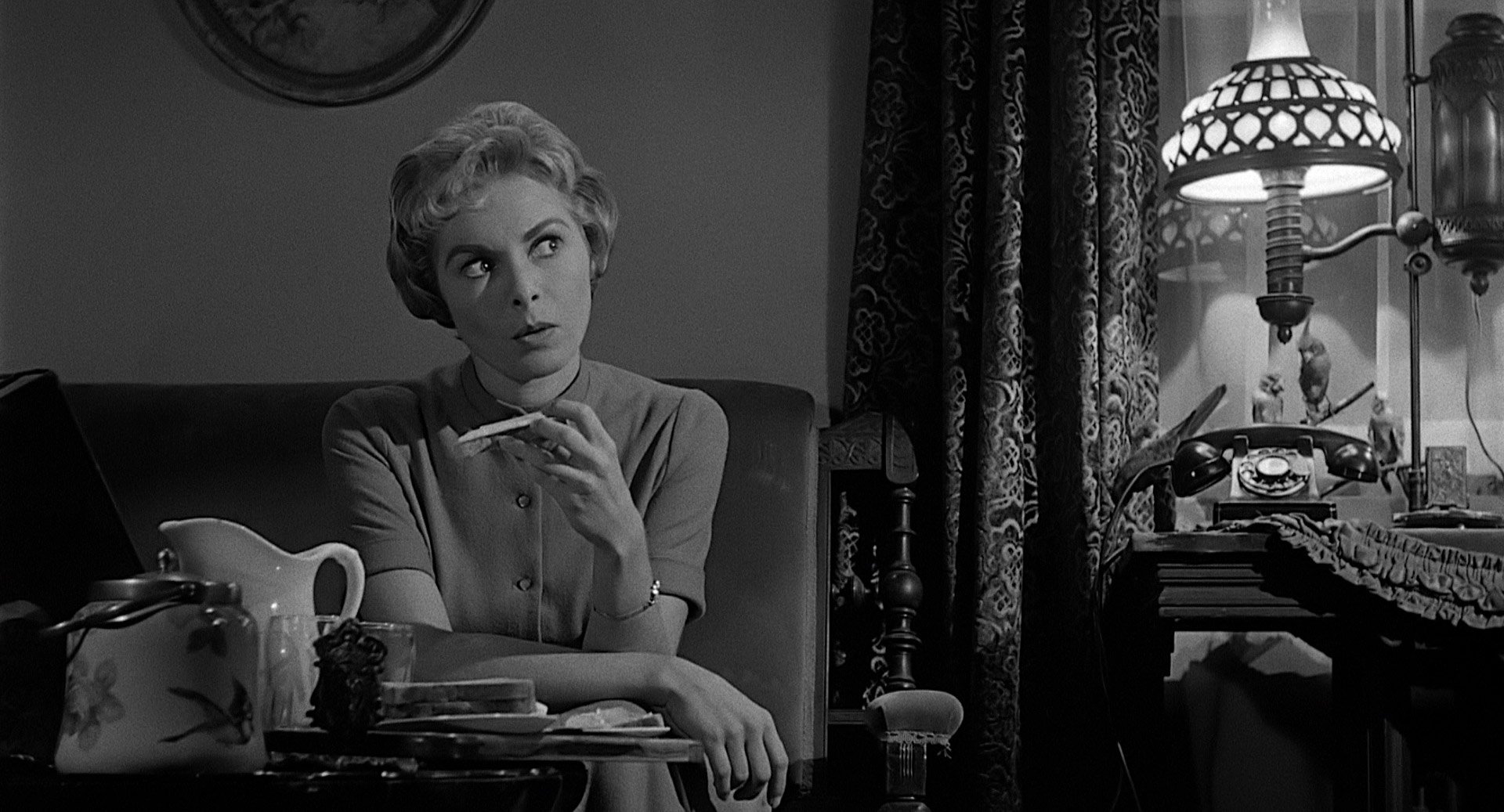
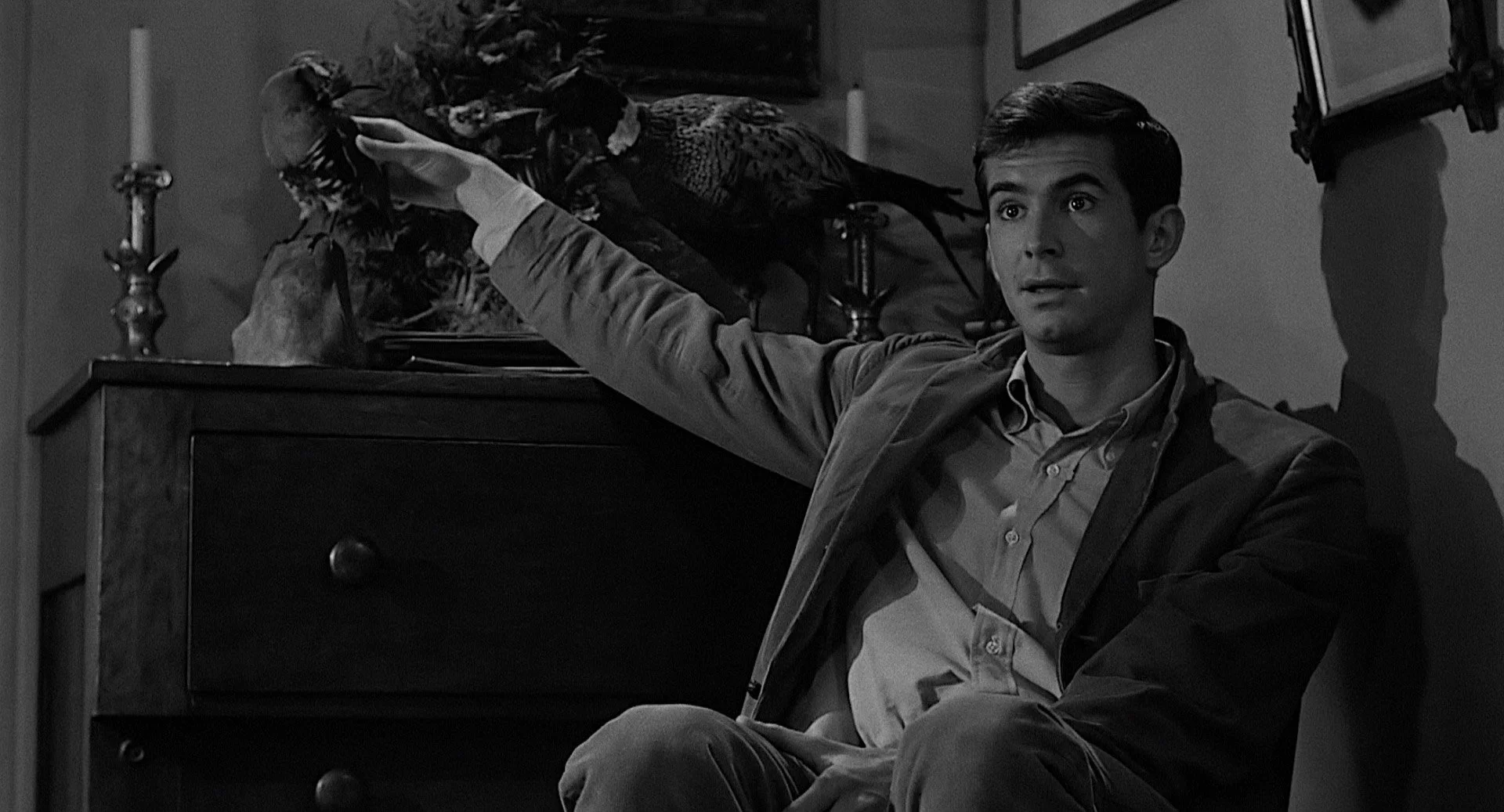

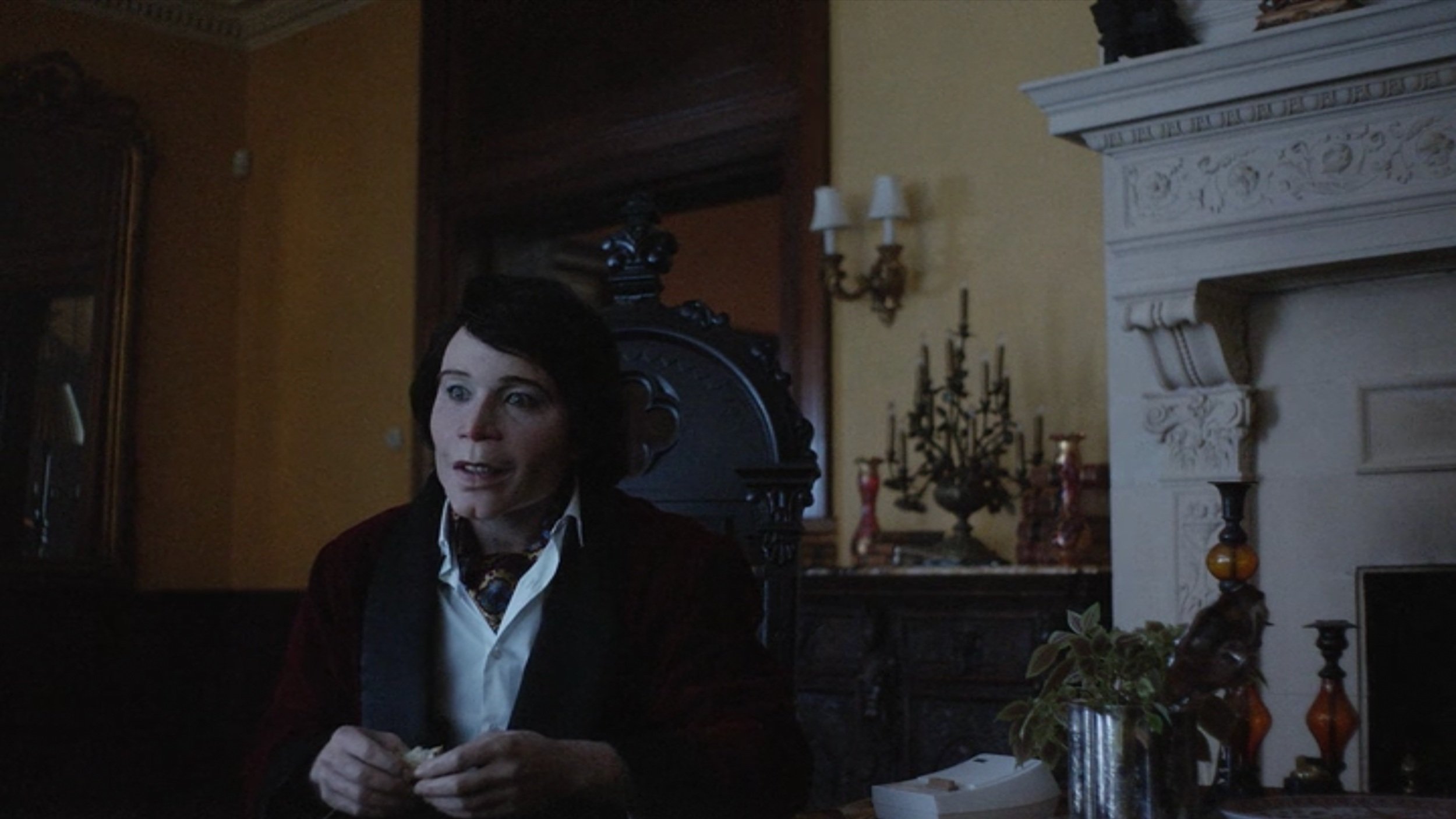
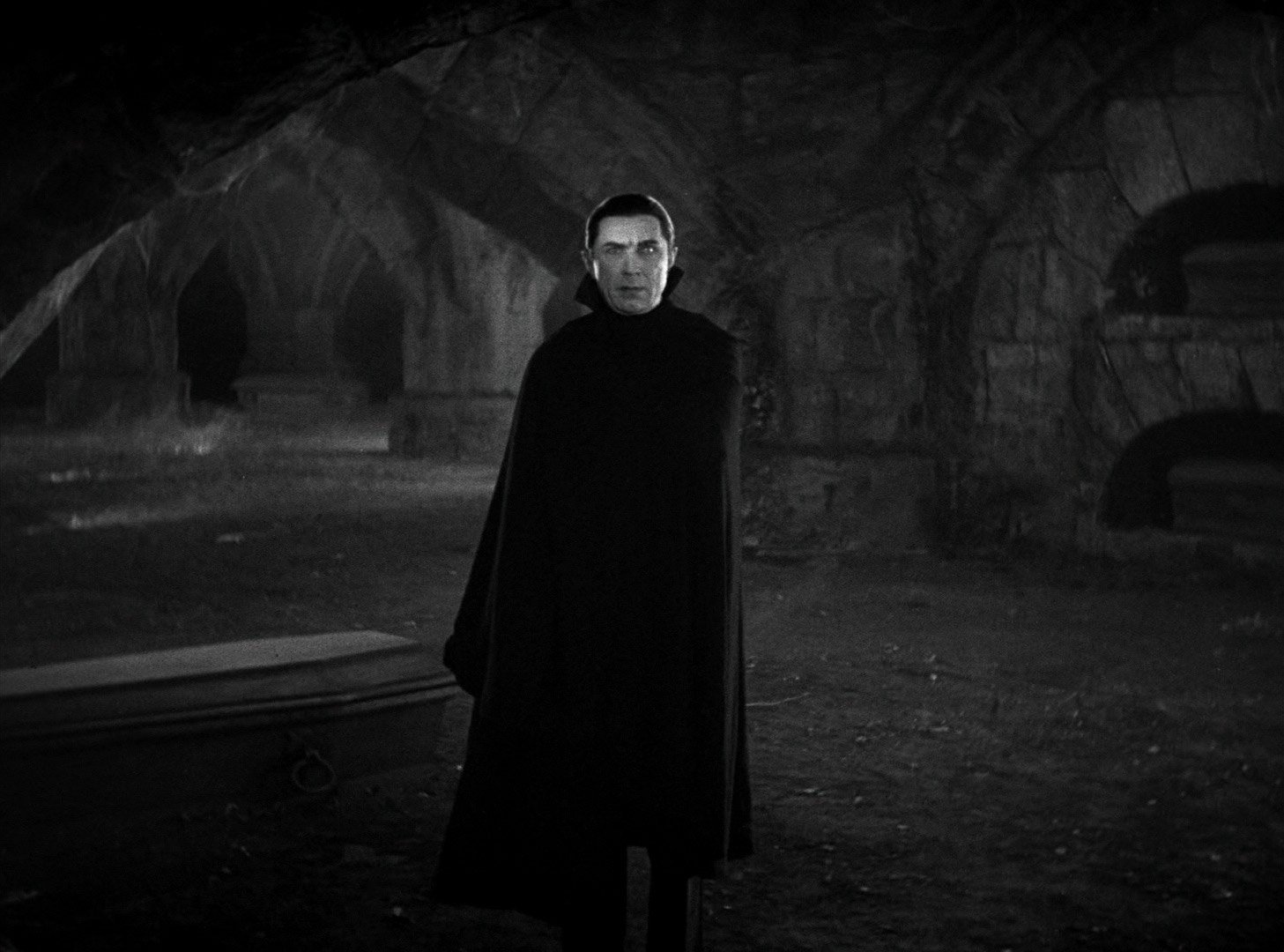

George just escaped from a mansion where he just had Fiji mixed with Evian with some Poland Spring and ate a soft-boiled ostrich egg with some weird ass dude.
He’s here to tell you all about it.